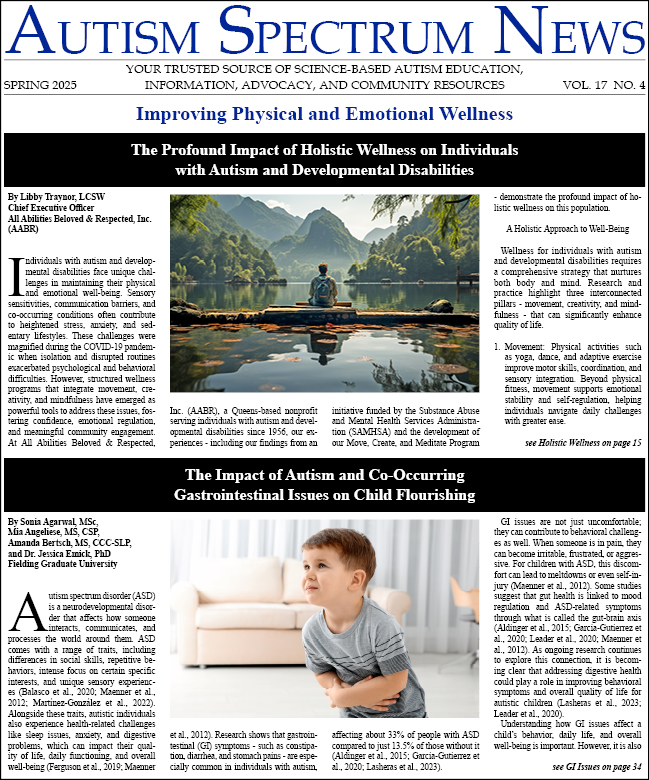-
Adult ASD Diagnosis: “It’s Not a Label – It’s an Explanation”
About a year ago, I attended a conference workshop on adult autism spectrum disorder (ASD) diagnoses which addressed their value to those on the spectrum. I was surprised, and even shocked, to learn that there is controversy about the value of these diagnoses, particularly for less-impaired adults...
-
Balancing Health and Safety Issues with Individual Rights in Adults with Intellectual Disabilities
The history of treatment of individuals with developmental disabilities is fraught with violations of personal liberties. In a seminal article, Bannerman, Sherman, and Sheldon outlined the need to respect individual rights in the context of effective treatment (1988). Since that time, service...
-
Support and Social Groups: An Essential and Vital Need of the Autistic Community
During all of the years since I was first diagnosed on the autism spectrum, support groups have been a constant part of my life in a variety of ways. Having attended, facilitated, and served in organizations that sponsored such groups, I came to appreciate their importance to those on the spectrum...
-
The Direct Care Collaborative – Two Populations in Crisis: Adults with Severe Autism and Those That Support Them
As most of us who are reading this page know, there is a paradoxical relationship between the increasing numbers of people with Autism Spectrum Disorder (ASD) entering adulthood every year and the decline in available services. Indeed, the number of adults (22+) with autism is estimated at 200,000,...
-
The Dilemma of Aging Parents with Adults with Autism Still Living at Home
In a summary of key findings from the 2015 National Autism Indicators Report, we aging parents now have confirmation: “Young adults with autism had the lowest rate of independent living (19%) compared to their peers with other disabilities.”1 The 2015 State of the State in Developmental...
-
Defining Care for High-Functioning Adults with Autism
A lost art in modern conversation (not surprisingly, as we are quite possibly the busiest society in world history) is the definition of one’s terms. To be sure, this requires time and patience; but by clarifying all foundational points, we make the rest of the conversation much easier....
-
Adults and Autism: Insights and Changes from a Clinical Perspective
It has been six years since I first wrote on the topic of evidence-based behavioral health treatment for adults diagnosed with autism spectrum disorder (ASD). I would like to revisit this subject to address progress in the field. Without substantive data to help guide behavioral and therapeutic...
-
Community Autism Socials at Yale (Project CASY): Developing Group Intervention for Adults Living with Autism
Recommending a “social skills” group is a very common intervention seen in treatment plans of both children and adults living with autism. Despite their popularity, the evidence supporting the effectiveness of social skills groups in children is limited and the situation is more serious in...
-
The Importance of Community Social Participation for Adults with ASD
Over the past ten years, researchers have been investigating the quality of life and overall functioning of adults with ASD (Orsmond, G.I., et al., 2013; Billstedt, E., et al., 2011; Robertson, S.M., 2010; Renty, J.O. & Roeyers, H., 2006). A consistent finding across these studies is the...
-
Two Case Studies of Success Using ABA to Increase Independence for Adults with Developmental Disabilities
“I had a doctor finally help me with my head, and now I feel so much better. I got glasses when I needed them. I couldn’t have a job before because I was always in the hospital. Now I can get a job.” These are the words of a 36-year-old woman transformed by ABA. A woman who 8 months ago had a...





